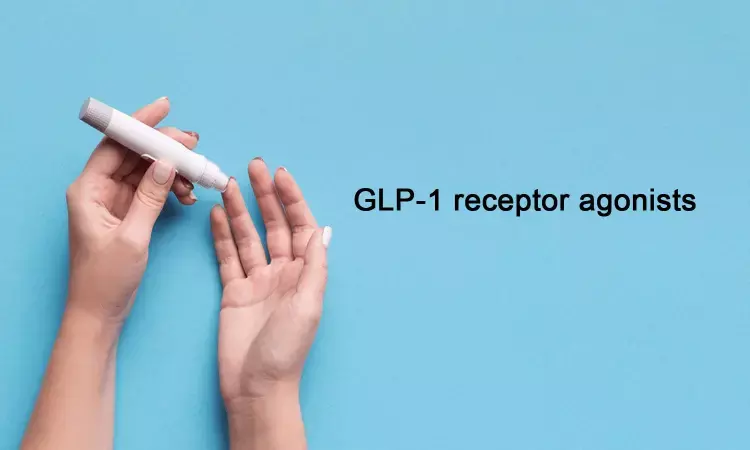- Home
- Medical news & Guidelines
- Anesthesiology
- Cardiology and CTVS
- Critical Care
- Dentistry
- Dermatology
- Diabetes and Endocrinology
- ENT
- Gastroenterology
- Medicine
- Nephrology
- Neurology
- Obstretics-Gynaecology
- Oncology
- Ophthalmology
- Orthopaedics
- Pediatrics-Neonatology
- Psychiatry
- Pulmonology
- Radiology
- Surgery
- Urology
- Laboratory Medicine
- Diet
- Nursing
- Paramedical
- Physiotherapy
- Health news
- Fact Check
- Bone Health Fact Check
- Brain Health Fact Check
- Cancer Related Fact Check
- Child Care Fact Check
- Dental and oral health fact check
- Diabetes and metabolic health fact check
- Diet and Nutrition Fact Check
- Eye and ENT Care Fact Check
- Fitness fact check
- Gut health fact check
- Heart health fact check
- Kidney health fact check
- Medical education fact check
- Men's health fact check
- Respiratory fact check
- Skin and hair care fact check
- Vaccine and Immunization fact check
- Women's health fact check
- AYUSH
- State News
- Andaman and Nicobar Islands
- Andhra Pradesh
- Arunachal Pradesh
- Assam
- Bihar
- Chandigarh
- Chattisgarh
- Dadra and Nagar Haveli
- Daman and Diu
- Delhi
- Goa
- Gujarat
- Haryana
- Himachal Pradesh
- Jammu & Kashmir
- Jharkhand
- Karnataka
- Kerala
- Ladakh
- Lakshadweep
- Madhya Pradesh
- Maharashtra
- Manipur
- Meghalaya
- Mizoram
- Nagaland
- Odisha
- Puducherry
- Punjab
- Rajasthan
- Sikkim
- Tamil Nadu
- Telangana
- Tripura
- Uttar Pradesh
- Uttrakhand
- West Bengal
- Medical Education
- Industry
GLP-1 Receptor Agonists May Elevate Levels of Tumor Marker CA 19-9: A Cautionary Case Study

China: Recent observations have highlighted a rare and noteworthy side effect associated with the use of glucagon-like peptide-1 (GLP-1) receptor agonists (GLP1-RAs), commonly prescribed for the management of type 2 diabetes mellitus (T2DM). While these medications have become increasingly popular for their efficacy in controlling blood sugar levels, a specific case has drawn attention due to its unusual outcome: a significant elevation in carbohydrate antigen 19–9 (CA 19-9) without any underlying tumor presence.
The case highlights the importance of recognizing that GLP1-RAs, while beneficial for glycemic control in T2DM, can produce unexpected adverse reactions, including elevated tumor markers.
"GLP1-RAs can cause increased levels of tumor markers during the treatment of type 2 diabetes, highlighting the need for careful monitoring throughout therapy. It’s important to tailor antidiabetic management to each individual’s circumstances as necessary," the researchers wrote in Diabetes & Metabolism.
GLP-1 receptor agonists are widely prescribed for managing T2DM. While various adverse reactions have been documented, the case by Hongmei Jiao, Department of Geriatrics, Peking University First Hospital, Beijing, China, and colleagues highlights a rare occurrence where a GLP1-RA resulted in significantly elevated levels of CA 19-9 without any indication of a tumor.
This case centers on a 69-year-old Han Chinese woman with a 30-year history of type 2 diabetes mellitus, referred to the clinic for significantly elevated CA 19-9 levels at 839.8 U/ml (normal upper limit: 37.0), despite the absence of symptoms. Seventeen months prior, she started treatment with dulaglutide (1.5 mg weekly) to enhance glycemic control, alongside metformin (500 mg thrice daily) and acarbose (100 mg thrice daily). This regimen improved her blood sugar levels, reduced her appetite, and stabilized her weight after a 3 kg loss.
Her clinical examination was unremarkable, with a body mass index of 21.1 kg/m² and an HbA1c level of 6.5%. Imaging revealed a cystic lesion in the pancreatic tail and a solid mass in the right adnexal region, diagnosed as a broad ligament leiomyoma. Further tests, including PET-CT, showed no significant lesions.
Due to concerns regarding the potential impact of GLP-1 receptor agonists on pancreatic health, dulaglutide was discontinued. One week later, CA 19-9 levels began to decline, reaching normal levels (33.29 U/ml) within two months. Following the cessation of dulaglutide, her appetite improved, but her glycemic control worsened, prompting the addition of insulin to her treatment plan.
The case highlights that elevated CA 19-9 levels can occur with dulaglutide use without malignancy, underscoring the need for careful monitoring of tumor markers during treatment. Notably, levels returned to normal after discontinuation, suggesting that such increases can be drug-related. This is the first report linking dulaglutide to abnormal CA 19-9 elevation in the absence of cancer, emphasizing the importance of follow-up and further investigation when faced with rising tumor markers.
"This case report highlights a rare phenomenon linked to individual variations in response to GLP-1 receptor agonist treatment. In clinical practice, it is crucial to quickly recognize such occurrences, intervene as needed, and discontinue the medication when appropriate to avoid adverse outcomes," the researchers concluded.
Reference:
Liang, R., Fu, Z., Chen, L., Zhou, S., & Jiao, H. (2024). A very rare cause of markedly elevated CA 19–9: Glucagon-like peptide-1 receptor agonists. Diabetes & Metabolism, 50(6), 101578. https://doi.org/10.1016/j.diabet.2024.101578
Dr Kamal Kant Kohli-MBBS, DTCD- a chest specialist with more than 30 years of practice and a flair for writing clinical articles, Dr Kamal Kant Kohli joined Medical Dialogues as a Chief Editor of Medical News. Besides writing articles, as an editor, he proofreads and verifies all the medical content published on Medical Dialogues including those coming from journals, studies,medical conferences,guidelines etc. Email: drkohli@medicaldialogues.in. Contact no. 011-43720751


